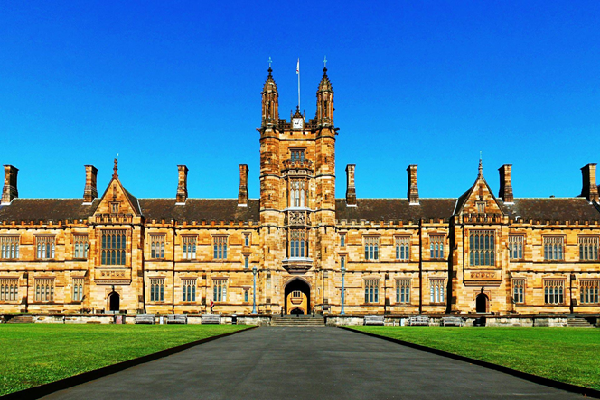University of Sydney: Sydney shifts position in global impact rankings
As more than 280 additional institutions join the Times Higher Education Impact Rankings this year the University of Sydney has seen a change in its global position.
The University has shifted position in the Times Higher Education Impact rankings which measure an institution’s research, stewardship, outreach and teaching against UN Sustainable Development Goals.
The University was one of 450 institutions across 76 countries worldwide to participate in the inaugural impact rankings in 2019, ranking 25th in the world. For the last two years the University ranked second in the world before this year placing 52nd out of 1406 institutions.
The Impact rankings measure how an institution’s research, stewardship, outreach and teaching delivers against the United Nations’ Sustainable Development Goals (SDGs) – a blueprint to achieving a better and more sustainable future for all.
The 17 goals encompass strategies to improve health and education, improve inequality, and spur economic growth, while tackling climate change and preserving our natural environment.
It is encouraging to see more institutions taking part in the rankings which demonstrates how the university sector is committed to achieving a sustainable future.
Professor Kathy Belov, Interim Deputy Vice-Chancellor (Research)
“As with some other institutions who chose to participate from the start we have seen a change in our position despite only minor shifts in our scores. We look forward to continuing to engage in this ranking and striving for excellence, as we learn from the approach of other institutions,” said Professor Kathy Belov, Interim Deputy Vice-Chancellor (Research).
“It is encouraging to see more institutions taking part in the rankings which demonstrates how the university sector is committed to achieving a sustainable future. While rankings can’t capture every possible factor they are an important tool in helping us understand how our efforts are perceived globally.”
All institutions must submit for SDG 17 which explores how universities teach the next generation to adopt sustainability, and three other SDGs of their choice. The University of Sydney submitted for 10 other SDGs in addition to SDG 17 and experienced a six percent drop in its overall score. We had six out of our 11 SDGs rated in the top 50 in the world.
The University continued to perform best in:
SDG 6 Ensuring access to water and sanitation for all. The University ranked 17th out of 634 globally.
We are part of a joint initiative which is using innovative technology to enhance knowledge of water movement in NSW. Our researchers are also looking at water governance in the Murray-Darling Basin, where there are risks that ongoing climate change will significantly reduce water availability and jeopardise the ecosystem.
SDG 11 Making cities inclusive, safe, resilient and sustainable. The University ranked 13th out of 783 globally.
The Sydney Policy Lab looks at Sydney’s housing problem and the pressures of affordability putting people at risk; the Institute of Transport and Logistics Studies are leading research to transition Australia’s transport industry towards a green future; Sydney Environment Institute researchers have turned their attention to heat stress and how we can respond.
SDG 15 Sustainably managing forests, combating desertification, halting and reversing land degradation, halting biodiversity loss. The University ranked 14th out of 521 globally.
Sydney researchers were the first to sequence the koala and echidna genomes, informing conservation efforts, from diet to genetic diversity. A team of researchers from the Sydney Environment Institute are undertaking research on community protection of animals during catastrophic fires. Our soil scientists are exploring how soil can be a sustainable and potentially powerful tool to combat the effects of global warming.
The University’s sustainability targets include:
net zero emissions by 2030
zero waste to landfill by 2030
30 percent reduction on potable water use by 2030
minimum five-star Green Star rating for new buildings, and four-star Green Star rating for all complete building refurbishments
introduction of sustainable procurement practices to reduce waste and increase social sustainability.

